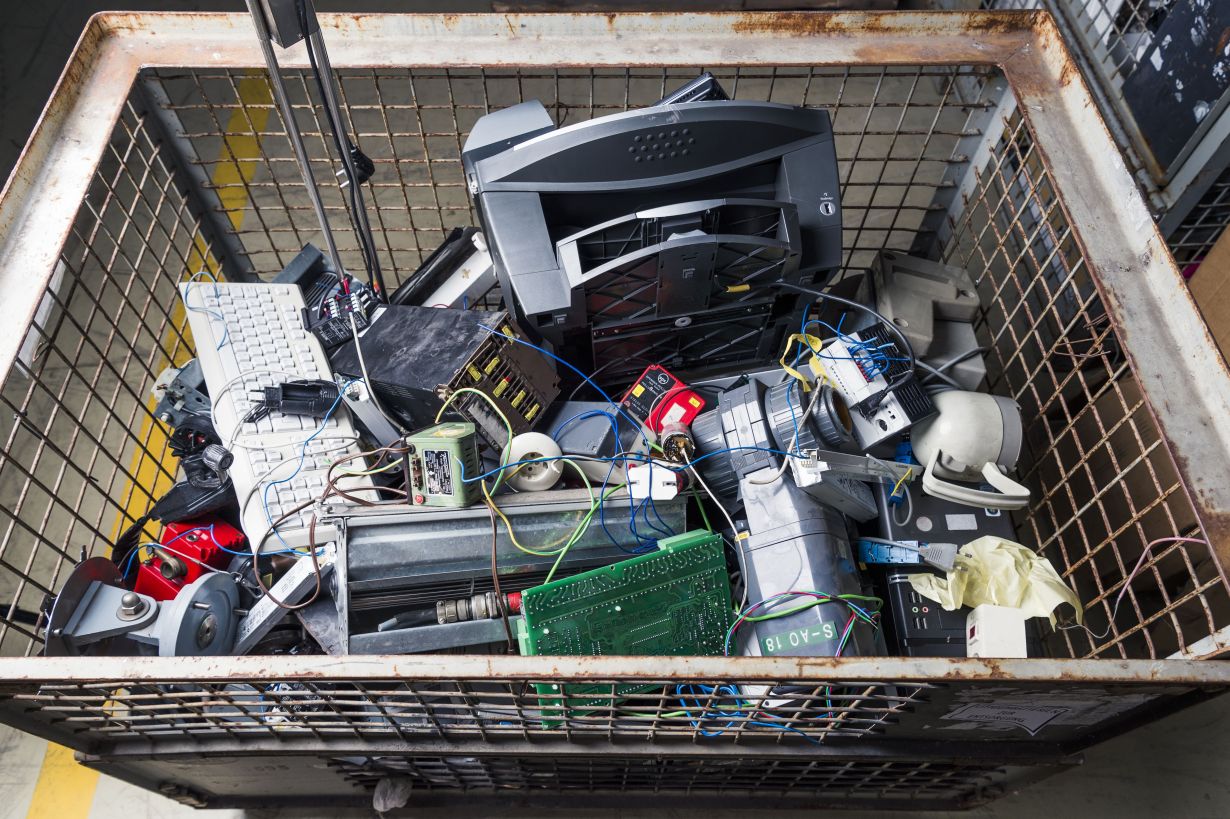Adhesives to join components are indispensable in industry, but reliable joining is no longer sufficient. The recycling economy pushed by the EU requires proper disassembly of high-tech products, such as mobiles, into their basic materials during repairs or recycling. A thermolabile and reversible adhesive developed by Karlsruhe Institute of Technology (KIT) now helps to do so. This invention can be used for a wide range of applications and will reduce the consumption of resources.
Increasing recycling quotas are to foster circular economy in the European Union with a maximum duration of use of products, materials, and resources. The goal is to further reduce waste volumes and to manufacture products that can be repaired, reused, and recycled. Yet, service life of electronic devices, for instance, is decreasing. Smart phones are rejected after one to two years of use. Their proper recycling without any residues remains a challenge.
“Components of many products used daily, for example mobile phones or tablets, are usually bonded at certain points,” says Professor Christopher Barner-Kowollik, Head of the Macromolecular Architectures Working Group at KIT’s Institute for Chemical Technology and Polymer Chemistry (ITCP). In industry, components are increasingly joined by bonding instead of welding, riveting or screwing. Adhesives reduce total weight and fulfilled additional functions, such as insulation or damping. The drawback: once they have hardened, debonding is possible with a large time or energy expenditure only. If a bonded product has to be disassembled for repair or recycling, individual components are often damaged or destroyed.
The new thermolabile adhesive developed by Barner-Kowollik and his team at KIT solved this problem. It is stable at room temperature, but can be decomposed precisely, rapidly, and at comparably low temperatures. Upon the completion of the process, the respective location exhibits coloring. For this “Debonding on Demand” (DoD), the experts provided the network of long-chain polymer molecules with predetermined breaking points. At these points, the chemical compounds open at moderate temperatures below 100°C and the adhesive disintegrates. Its composition and the temperature required for detachment can be adapted to the application. “These parameters can be varied by modifying the molecules,” Barner-Kowollik says.
For the smart adhesive that was originally developed for dental technology, i.e. easy removal of bonded crowns or brackets, a number of applications have been opened up. Apart from the electronic sector, use in production is feasible to temporarily fix material on a workbench or on construction sites to remove dowels. The thermolabile adhesive has been patented and is now planned to be further developed in cooperation with partners from different industrial sectors.
More about the KIT Center Materials in Technical and Life Sciences: http://www.materials.kit.edu
Being “The University in the Helmholtz Association”, KIT creates and imparts knowledge for the society and the environment. It is the objective to make significant contributions to the global challenges in the fields of energy, mobility, and information. For this, about 10,000 employees cooperate in a broad range of disciplines in natural sciences, engineering sciences, economics, and the humanities and social sciences. KIT prepares its 22,800 students for responsible tasks in society, industry, and science by offering research-based study programs. Innovation efforts at KIT build a bridge between important scientific findings and their application for the benefit of society, economic prosperity, and the preservation of our natural basis of life. KIT is one of the German universities of excellence.

